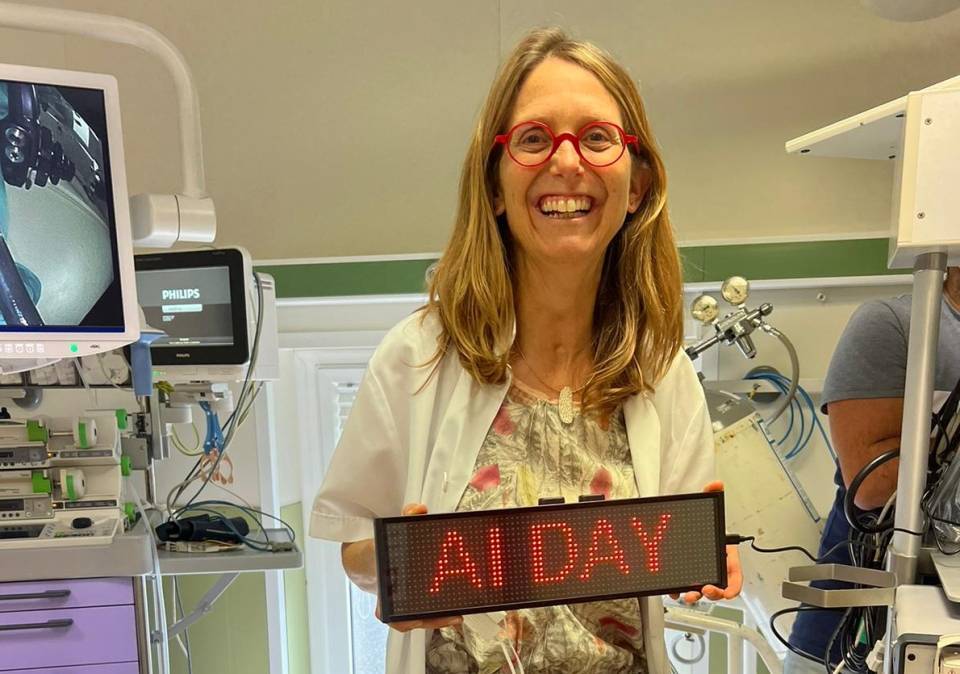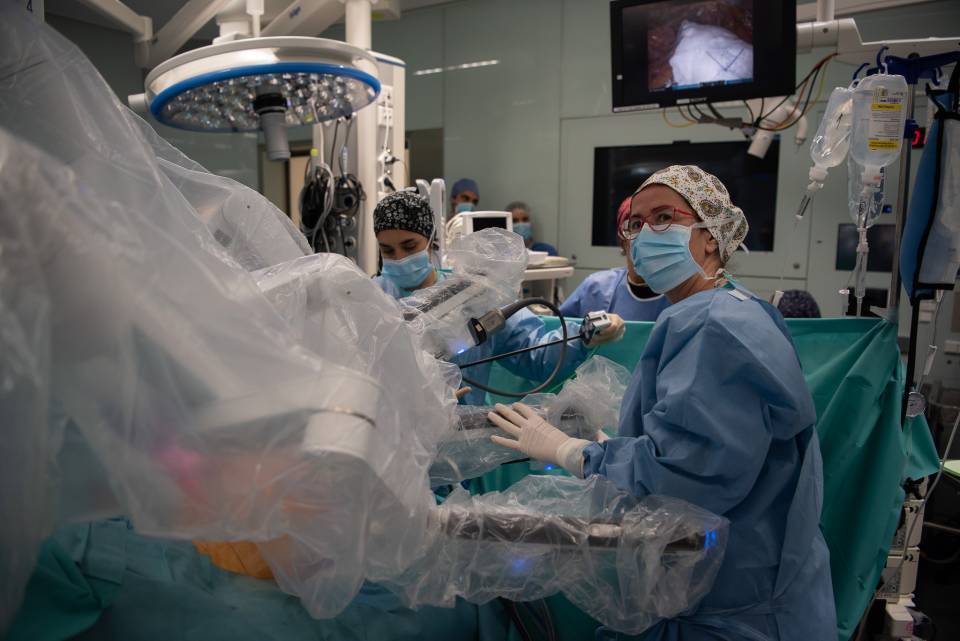Over the next five years, the team behind the project “Optimising colorectal cancer prevention through personalised treatment with artificial intelligence (OperA)” will seek to develop and validate a tool based on artificial intelligence-assisted colonoscopy to increase the detection of neoplastic lesions, as well as to classify them in situ according to their risk, in order to increase the cost-effectiveness of colorectal cancer screening programmes and provide patients with more personalised treatment. Maria Pellisé, a researcher in the IDIBAPS Gastrointestinal and pancreatic oncology group led by Antoni Castells, will direct the Hospital Clínic-IDIBAPS’ contribution to the project, which is coordinated by the University of Oslo and has the participation of 17 institutions from 11 different countries.
Specifically, Pellisé and her team will conduct a randomised controlled clinical trial in which participants will be assigned at random to different intervention groups and then compared to a control group in order to assess whether artificial intelligence improves the detection of adenomas in patients with colorectal cancer screening requiring colonoscopy. The patients taking part in the trial will be administered colonoscopies, with or without the assistance of artificial intelligence, and the capacity to detect precursor lesions of each protocol will be analysed. A ten-year monitoring programme of the mortality and incidence of colorectal cancer in these patients will also be implemented. The researchers will receive 250,000 euros out of the total of 4.7 million euros allocated by the Horizon Europe programme.
Uncertainty about its long-term benefits and cost-effectiveness, as well as ethical and legal debates, have hindered the integration of artificial intelligence technologies into clinical medicine. However, there is evidence that the use of AI in colonoscopy procedures can help to significantly reduce the incidence and mortality of colorectal cancer. Firstly, AI seems to improve the detection rate of adenomas, the precursor lesions of colorectal cancer. Secondly, accurately classifying polyps during colonoscopy provides information on the risk of colorectal cancer, which can determine the patient's future treatment and appropriate screening interval. The researchers hope to recruit 222,000 participants with a view to advancing towards the inclusion of artificial intelligence in colonoscopy screening.




